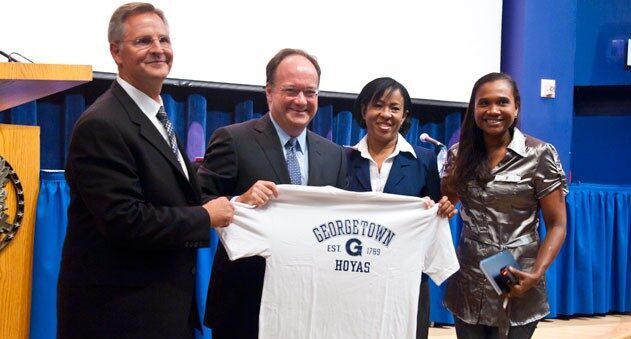Anti-Sweatshop Sourcing

Labor Standards and Sweat-Free Purchasing
Decent work is a human right. Basic standards of decent work include freedom of association and the right to bargain collectively, abolition of child labor and forced labor, and freedom from discrimination in the workplace. In a global economy, how can such standards be enacted and enforced?
The Kalmanovitz Initiative supports work on procurement standards through its collaboration with the Harrison Institute for Public Law at the Georgetown University Law Center. The Harrison Institute represents the Sweatfree Purchasing Consortium, a consortium of thirteen local and state governments that seeks to connect government purchasers to pre-screened responsible suppliers who manufacture apparel under decent working conditions. With support from the Kalmanovitz Initiative, the Harrison Institute supplies expertise on a range of legal and policy issues related to government procurement, including the rules and procedures for acquiring goods through state and local contracting, state preemption, and government transparency.
Alta Gracia
Alta Gracia, a new clothing factory in the Dominican Republic, sews college apparel with a conscience. Alta Gracia pays its workers a living wage and respects their right to organize, and Alta Gracia markets its apparel as sweat-free. The Alta Gracia experiment is testing the power of consumer demand for fair-labor products. In summer 2010, the Kalmanovitz Initiative sponsored research by Georgetown University professor John Kline through our Faculty Research Grants program on Alta Gracia. His study, “Branding Decent Working Conditions,” is the first academic work on the factory.
In October 2010, the Kalmanovitz Initiative also organized a panel discussion on the Alta Gracia experiment with Scott Nova, Director of the Worker Rights Consortium; Cathy Feingold, Director of International Affairs, AFL-CIO; and Robert Stumberg of Georgetown Law’s Harrison Institute. The Kalmanovitz Initiative continues to support work analyzing the feasibility and promise of the Alta Gracia model.
The Alta Gracia project was featured in an article in the New York Times in July 2010 and on the More Than Money Podcast in 2017.
